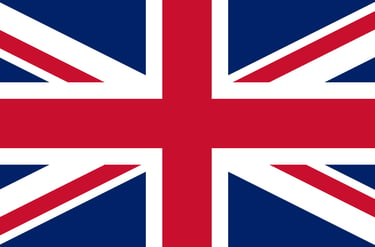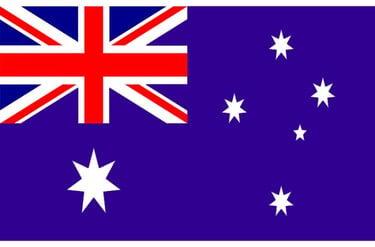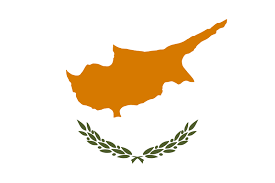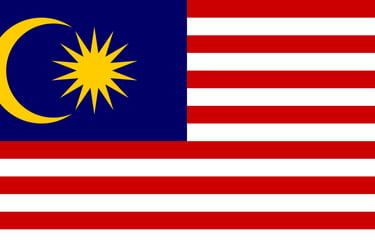
Study in Canada
Your Gateway to Global Oppurtunities
Canada is a leading destination for students from the Pakistan, offering top-tier universities, a welcoming multicultural environment, and pathways to permanent residency. Every year, thousands of Pakistani students choose Canada for its high-quality education, career prospects, and inclusive society.
Choosing to study abroad in Canada is a great investment in your future, as the country is home to world-class institutions. Students have become an important part of Canada’s academic community, benefiting from top-tier education and extensive support services. Explore the key details of studying in Canada, including tuition costs, visa requirements, and the university application process.








Study in Canada: Explore Courses, Costs, and Top Universities
Why Choose Canada for Higher Education?
Canada is a top destination for Pakistani students seeking high-quality education and promising career opportunities. Its unique advantages provide the perfect environment for both academic excellence and personal growth.
World-Class Education:
Renowned for its exceptional universities and colleges, Canada offers research-focused education, experienced faculty, and globally recognized degrees. These qualifications pave the way for excellent career opportunities worldwide, making it a dream destination for students.
Work and Career Opportunities
Canada recently introduced a new policy allowing international students to work up to 24 hours per week during academic sessions, providing greater financial independence and real-world experience. Graduates can also benefit from programs like the Post-Graduation Work Permit (PGWP), which allows them to gain valuable work experience in Canada after their studies.
Diverse Academic Opportunities
Canadian institutions provide academic flexibility and specialize in advanced fields such as artificial intelligence, environmental sciences, and healthcare, alongside traditional disciplines like engineering, business, and social sciences. This diversity allows students to pursue interdisciplinary studies or customize their education to match their career aspirations.
Pathway to Permanent Residency (PR):
Programs such as Express Entry and Provincial Nominee Programs (PNPs) make it easier for international graduates to transition to PR status.
Canada is a popular destination for international students, known for its high-quality education and multicultural environment. Students can manage them with thoughtful budgeting. Below is a detailed breakdown of typical monthly living expenses for students in Canada.
1. Accommodation
Where you choose to live greatly affects your budget. Here are the main options:
University Residences: Convenient and often a good option for first-year students. Costs typically range from CAD 500 to CAD 1,000 per month. This includes a basic dorm room and may or may not include a meal plan. Costs vary by university, city, and room type.
Shared Apartments: Sharing an off-campus apartment with roommates can reduce costs. Expect to pay roughly CAD 500 to CAD 1,000 per person per month. Depends on the city, apartment size, and location. Larger cities like Toronto and Vancouver will have higher rents.
Private Apartments: Offers more independence but is the most expensive option. Expect to pay upwards of CAD 1,200 per month for a studio or one-bedroom apartment. This can vary greatly by location and apartment size. Use online rental platforms to get a better idea of rental costs in your chosen city.
These figures are estimates. Always check with your university and use online resources to research specific costs in your chosen city.
2. Food and Groceries
Dining Out: A meal at a casual restaurant typically costs CAD 15 to CAD 20, while fast food options are usually cheaper.
Groceries: Cooking your meals at home can save money. Expect to spend around CAD 300 to CAD 600 per month on groceries, depending on your diet.
3. Transportation
Public Transit: Most Canadian cities offer reliable bus, subway, or train systems. Monthly passes range from CAD 70 to CAD 120, depending on the city.
Ride-Hailing Services: Uber and Lyft are available in many cities but can be costly for frequent use.
Personal Vehicles: Owning a car includes expenses like insurance, gas, and maintenance, which can add up quickly.
4. Additional Costs
Utilities: For off-campus housing, the budget for electricity, gas, water, and internet, can cost CAD 150 to CAD 300 per month.
Entertainment and Leisure: Movie tickets, events, and outings add to costs. Look for student discounts!
Health Insurance: International students in Canada need health insurance. Most provinces offer affordable health plans for students, or your university may have mandatory coverage.
Cost of Living in Canada for Students
Tuition Fees in Canada
About
Canada is a vast and vibrant country in North America, renowned for its high quality of life, inclusive culture, and breathtaking natural beauty. With the United States to its south, Canada stands as a global leader in education, healthcare, and environmental conservation. From dynamic, bustling cities to the serene majesty of its mountains, forests, and lakes, it offers a unique blend of modern innovation and natural wonder. Known for its progressive values and commitment to diversity, Canada continues to shine on the world stage, attracting people from all corners of the globe with its endless opportunities, safety, and welcoming spirit.
Capital: Ottawa
Government: Federal Parliamentary Democracy and Constitutional Monarchy
Dialing code: +60
Over 100 public and private universities, including top-ranking institutions like the University of Toronto, McGill University, and the University of British Columbia.
Institutions:
Undergraduate Tuition Fees:
Approx. CAD 25,000 – 35,000 per year (average
Postgraduate Tuition Fees:
Approx. CAD 15,000 – 30,000 per year (average)
Post-Graduation Work Permit (PGWP):
International students can apply for a PGWP, allowing them to work in Canada for up to 3 years post-graduation.
Student's top study destination








UK
Australia
Cyprus
Malaysia
Admission Intakes in Canada
To apply for a student visa (Study Permit) to study in Canada, international students generally need the following documents:
Letter of Acceptance:
An official letter of acceptance from a Designated Learning Institution (DLI) in Canada. This confirms your admission to the institution and outlines your program of study, start date, and tuition fees.
Valid Passport:
A passport valid for at least the duration of your intended stay in Canada, plus a few months beyond.
Passport-Size Photographs:
Two recent photographs meet the specific Canadian visa photo requirements (size, background, etc.). Details can be found on the IRCC website.
Academic Transcripts and Certificates:
Verified copies of your academic records, including previous degrees, diplomas, and transcripts. These may need to be officially translated if not in English or French.
Proof of Financial Support:
Evidence that you have enough money to cover your tuition fees, living expenses, and return transportation. This can include bank statements, a Guaranteed Investment Certificate (GIC) from a participating Canadian bank, proof of a student loan, or a letter of support from a sponsor.
Language Proficiency Test Scores:
Results from an approved language test like IELTS or TOEFL, meet the minimum score required by your DLI. Some institutions may accept other language tests or have exemptions.
Immigration Medical Examination (IME):
A medical exam is conducted by a panel physician designated by IRCC. This is required for applicants from certain countries or those planning to work in specific fields.
Completed Visa Application Form (IMM 1294):
The application form for a study permit is accurately filled and submitted online or by mail. You’ll need a personal checklist code from the IRCC website to start your application.
Biometric Information:
Fingerprint and photograph submission at a Visa Application Centre (VAC). This is required for most applicants.
Visa Application Fee Receipt:
Proof of payment for the visa application processing fee.
Statement of Purpose (SOP):
A clear and concise letter explaining your reasons for studying in Canada, your chosen program, your academic goals, and your plans after graduation. This helps visa officers understand your intentions and commitment.
Additional Documents (if required):
Depending on your nationality, program of study, or individual circumstances, you may need to provide:
A police clearance certificate
A letter of explanation
A Certificat d’acceptation du Québec (CAQ) if studying in Quebec
Other supporting documents as specified by IRCC
While tuition costs in Canada are higher than in many other countries, they reflect the quality of education and facilities provided.
Undergraduate Programs: Approx CAD 25,000 – 35,000 per year.
Postgraduate Programs: Approx CA D 15,000 – 35,000 per year
How to Apply for a Canada Student Visa
Scholarships in Canada for International Students
Canada offers a range of scholarships for international students to support their academic pursuits at Canadian post-secondary institutions. These scholarships are funded by Canadian governments, foreign governments, NGOs, and international organizations. Notable programs include:
Vanier Canada Graduate Scholarships (Vanier CGS)
Banting Postdoctoral Fellowships
Emerging Leaders in the Americas Program (ELAP)
Canada-ASEAN Scholarships and Educational Exchanges for Development (SEED)
Canadian institutions offer three main intakes:
Fall Intake (September): Most programs are available during this intake.
Winter Intake (January): A good option if you miss the fall intake.
Summer Intake (May): Limited courses but ideal for some fields of study.
Students can plan their applications based on these intakes with our expert guidance.
Budget-Friendly Canadian Universities for Students
Canada has many great universities that are both prestigious and affordable, making it a top choice for students. Some of the most popular ones include:
University of Windsor
University of Saskatchewan
University of Regina
Memorial University
University of Alberta
University of Victoria
Simon Fraser University
Toronto Metropolitan University
Wilfrid Laurier University
University of Manitoba
These universities offer diverse affordable programs to international students, ensuring academic and personal success.

Talk to an Expert
London office
71-75 Shelton St,
London. WC2H 9JQ
United Kingdom.
+44 7779972729
© 2024. All rights reserved.
Lahore office
Alpha Society
Lahore.
+92 321 0222666
2nd floor, toheed mall, Queens Rd, Madina Town, Sargodha.
+92 0322 1044222
2nd Floor, Hasham Plaza, Main GT Rd, Pak Town Kāmoke.
Office No 3/24, 5th floor, Metro Station, Silk Centre, Rawalpindi.
+92 342 2228363
2nd Floor, Paptech College, Main GT Road, Gujranwala.
+92 3000 542900
+92 3000 542900
nankana sahib office
71-2nd Floor, Rehmat Center,
Nankana Sahib.
+92 329 8211044
Phool Nagar office
Bahir Wala Ada, Near Wapda office, Phool Nagar.
+92 300 0481010
